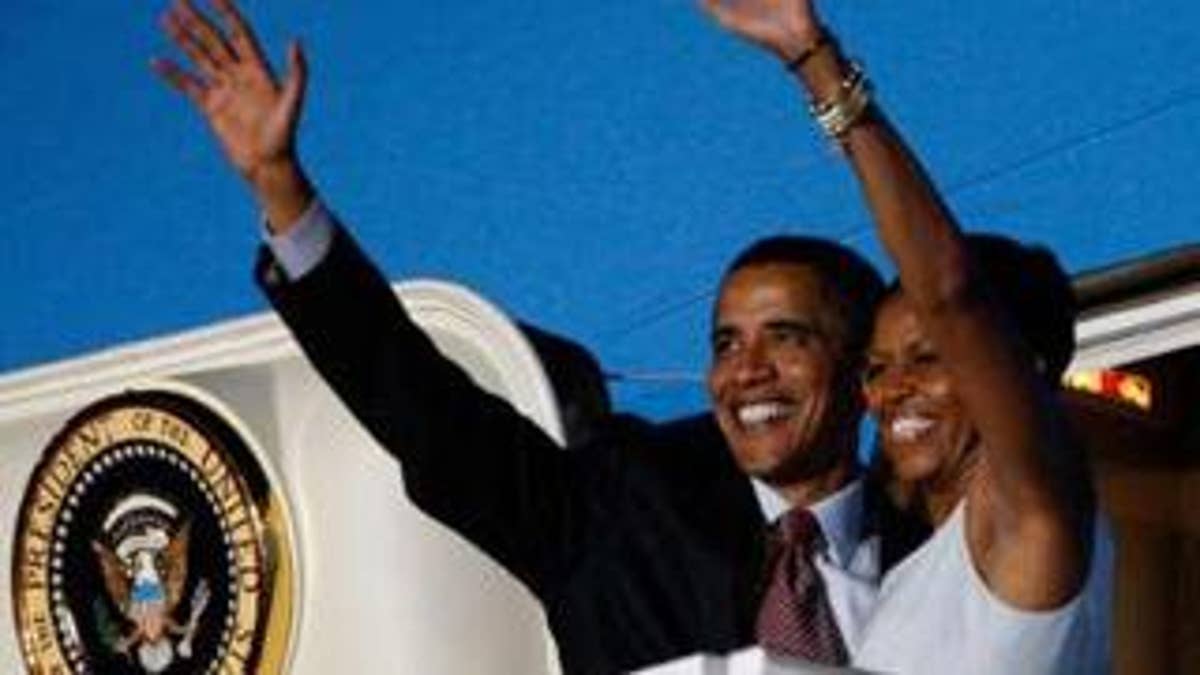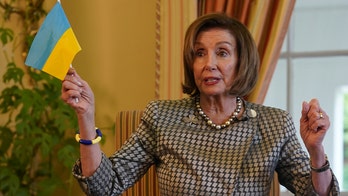
In his first six months in office, President Obama has traveled abroad the equivalent of twice around the world.
He's visited Russian President Dmitry Medvedev in Moscow to strike an agreement on arms reduction. He's given high-profile speeches to the Muslim world in both Egypt and Turkey. He's set out to tackle the global economic crisis at summits in Europe. And he's signed on to pledges to keep world temperatures from rising.
Somebody break out the kryptonite already.
Obama, whose international upbringing was touted as an asset during the campaign, has by far logged more frequent flier miles early on than any of his recent predecessors.
At the same time, Obama's foreign travel means he's not spending as much time at home -- a review of past administrations showed previous presidents devoted more time to traveling inside the United States.
"One comes at the expense of the other," said Brendan Doherty, an assistant professor of political science at the U.S. Naval Academy who studies presidential travel for the White House Transition Project.
Obama's travel schedule in his first six months reveals a commander-in-chief striving to establish himself as a foreign policy president whose diplomatic gravitas may usher in a new age of American leadership.
"It certainly shows an ambitious agenda in terms of international priorities," Doherty said. "He is trying to assert America's role as the country that shows preeminent leadership in global affairs. ... (Obama) certainly believes in his personal power to transform these international relationships."
Obama's international travel record is extensive. A snapshot:
-- Five foreign trips made
-- 14 countries visited
-- 25 days spent outside the United States
-- 48,620 miles logged
Those 25 days represent 14 percent of Obama's term to date.
And the president has racked up a series of international agreements, though not all as strong as he would have liked, along the way:
-- The launch of a "clean energy dialogue" aimed at reducing greenhouse gases, announced after meeting with Canadian Prime Minister Stephen Harper in Ottawa.
-- An international pledge for more than $1 trillion in financing to the International Monetary Fund and other institutions after the G20 summit in London. The agreement also called for a crackdown on tax havens and the establishment of a regulatory body to police the global financial system.
-- A commitment from NATO allies of 5,000 more non-combat troops and trainers in Afghanistan. The commitment did not include the combat troops the U.S. administration had wanted.
-- A new transit agreement allowing U.S. military equipment and supplies to travel through Russia en route to Afghanistan. The agreement builds off an earlier NATO-Russian agreement, and according to the White House will save the U.S. government up to $133 million annually.
-- A joint statement with Russia setting out target limits for warheads and delivery systems. The statement guides negotiations for a new treaty to replace the Strategic Arms Reduction Treaty, which expires in December.
-- Several other agreements with Russia, ranging from a pledge to cooperate more fully on bringing security to Afghanistan to a plan to create a "Bilateral Presidential Commission" for the two countries to build their relationship.
-- An agreement, at the recent G8 meeting in Italy, for industrialized nations to reduce greenhouse gas emissions by 80 percent by 2050. That coincided with an agreement to try to keep the average world temperature from rising more than 3.6 degrees Fahrenheit. The language built off, but went beyond, an agreement struck last year at the G8 meeting in Japan.
Doherty, who has compiled his own study of Obama's travel during the first six months, said the number of formal agreements the trips have yielded is high compared to the records of other new presidents.
But he also noted how Obama's travel reflects his priorities. While he's spent more time overseas than his predecessors, Obama has not spent as much time at public events inside the United States.
According to Doherty's study -- which spanned the window between Jan. 20 and June 30 for new administrations -- President George W. Bush spent 40 days on the road for domestic events outside the D.C. area. Obama spent 19.
President Bill Clinton spent 21 days at stateside events, and President George H.W. Bush spent 24 days.
Obama, rather, has charged Congress with pulling together the key planks of his domestic agenda, including energy and health care reform, while he's away. He even chided lawmakers on Capitol Hill for dragging on health care upon returning from his latest three-country tour.
"I just want to put everybody on notice, because there was a lot of chatter during the week that I was gone," Obama warned Monday. "We are going to get this done. Inaction is not an option."
The president seems to be trying to transition toward domestic priorities again, devoting the bulk of his recent public appearances to touting health care reform.
Whether Obama's overseas endeavors will bear fruit beyond a series of international agreements remains to be seen. He's clearly stressing a renewed relationship with Muslim countries, a goal reflected in his travel schedule.
In his first six months, Obama visited four Middle Eastern countries -- Egypt, Saudi Arabia, Turkey and Iraq. Doherty's study showed that his five predecessors did not visit any Middle Eastern countries in that period.




